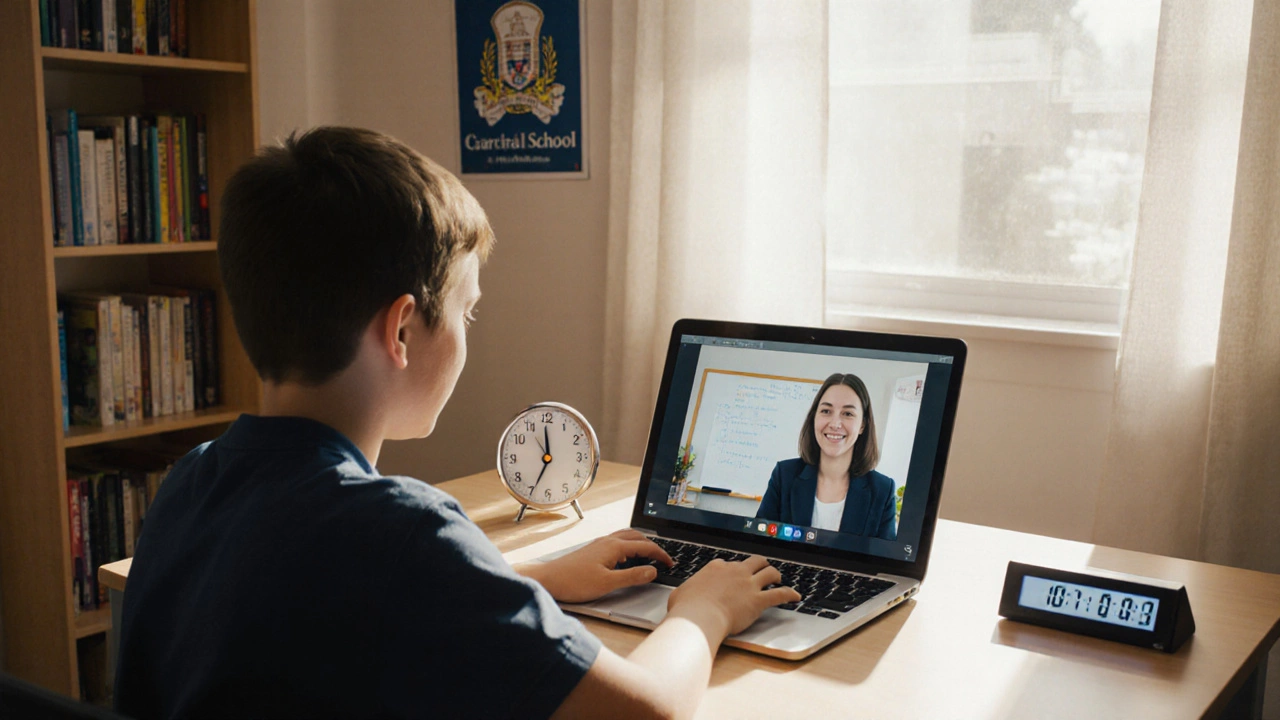Distance Learning: Flexible, Accessible Education for Everyone
Distance learning lets you study from anywhere, at any time. Whether you’re juggling a job, caring for family, or just prefer learning at your own pace, online education removes the walls of a traditional classroom. You can log in from a kitchen table, a coffee shop, or even on the road, and still earn a qualification.
What makes distance learning stand out is its ability to adapt to each learner. Courses are built with video lessons, quizzes, and discussion boards that you can complete when it fits your schedule. This personalization means you’re not forced into a one‑size‑fits‑all timetable.
Why Choose Distance Learning?
First, flexibility is the biggest draw. You decide when to start a module, pause if life gets busy, and pick up again without missing a beat. Second, you gain access to programs that may not exist locally. A student in a small town can enroll in a top university’s online degree without moving.
Third, the cost often drops compared to on‑campus options. You save on commuting, housing, and sometimes tuition. Many platforms also offer free courses that give you a taste of new subjects before committing to a full program.
Lastly, distance learning builds digital skills by default. You become comfortable with video conferencing, online research, and virtual collaboration – all valuable in today’s workplace.
Getting the Most Out of Online Courses
Set up a dedicated study space. Even a quiet corner with a reliable internet connection helps you focus. Turn off notifications, and let anyone you live with know when you’re in ‘class mode’.
Plan your week like you would for a regular class. Break lessons into manageable chunks, set deadlines for yourself, and stick to them. Using a simple calendar or task app can keep you on track.
Engage with peers and instructors. Posting in discussion forums, joining study groups on chat apps, or attending live webinars turns a solo experience into a community one. You’ll pick up different perspectives and stay motivated.
Take advantage of supplemental resources. Many courses provide reading lists, practice quizzes, and downloadable notes. Treat these as extra practice rather than optional extras.
If you hit a roadblock, reach out early. Most platforms have support teams or tutors who can clarify concepts or help with technical issues. Don’t wait until the deadline to ask for help.
Finally, reflect on what you’ve learned. Write a short summary after each module, or teach the concept to a friend. This solidifies knowledge and shows you what areas need more work.
Distance learning isn’t a magic shortcut, but it does give you control over how and when you learn. By setting clear goals, staying organized, and staying connected, you can turn online education into a powerful tool for personal and professional growth.

Is Online School Better for ADHD? Real Benefits and Hidden Challenges
- by Eliza Fairweather
- on 22 Dec 2025
Online school can help kids with ADHD by reducing sensory overload, offering flexible schedules, and removing social pressure. Learn the real benefits, hidden challenges, and what to look for in a program that actually works.

Is Distance Learning Good for Students? Real Pros and Cons in 2025
- by Eliza Fairweather
- on 21 Dec 2025
Distance learning works for some students but not others. In 2025, success depends on structure, support, and individual needs-not just the technology. Here's what actually helps students thrive.

What Is the Most Popular Type of Distance Learning Today?
- by Eliza Fairweather
- on 17 Nov 2025
Asynchronous online learning is the most popular type of distance learning today, offering flexibility for working adults, parents, and learners worldwide. It combines structure with freedom, leading to higher completion rates than live classes.

Remote Learning vs Homeschooling: Key Differences Explained
- by Eliza Fairweather
- on 10 Oct 2025
Learn the core differences between remote learning and homeschooling, covering curriculum, legal needs, social interaction, and tips for choosing the right path.

Why Online School Can Be Better Than Traditional School in 2025
- by Eliza Fairweather
- on 17 Sep 2025
Clear, evidence-backed reasons online school can outperform traditional school for some students in 2025-with steps, checklists, and FAQs to help you decide.

Why Distance Learning Works: Flexibility, Personalization, and Results
- by Eliza Fairweather
- on 12 Jul 2025
Discover why distance learning outshines traditional classrooms with its flexibility, personalized approach, and real-world results. Explore facts, tips, and honest insights.

Most In Demand Online Degrees: Find Your Best Career Path
- by Eliza Fairweather
- on 21 Jun 2025
Looking for a real edge in the world of online education? This article breaks down which online degrees are getting snapped up by employers right now. You'll find out which programs are leading to fast hires and real salary bumps. We’ll talk about the skills you need, how flexible programs work, and even what real students think. If you want to pick a degree that’s more than just a piece of paper, you’ll get plenty of ideas here.

In-Person vs Online: Why Face-to-Face Learning Wins
- by Eliza Fairweather
- on 4 Jun 2025
This article takes a close look at why in-person learning often edges out online classes when it comes to real results. It digs into solid reasons—like hands-on experience, better focus, and easier social connections. You’ll learn how classroom settings lead to stronger relationships between both students and teachers. Plus, there are tips to get the most out of traditional courses and insights on what online programs often miss. If you’re serious about learning, this breakdown can help you pick the best path.

Online Learning: Better or Worse for Real-World Success?
- by Eliza Fairweather
- on 17 May 2025
Online learning has changed how we think about education. Some people swear by the flexibility, while others miss the vibe of traditional classrooms. This article digs into what actually works and what tends to fall flat with online classes. You’ll find honest tips about making remote study work for you, what surprises to expect, and how it impacts real-life skills. By the end, you'll know if online learning is a shortcut, a struggle, or the best of both worlds.

Are Free Online Courses Really Free? What You Need to Know
- by Eliza Fairweather
- on 30 Apr 2025
Are free online courses too good to be true? This article breaks down what 'free' really means when it comes to online learning. You’ll learn about hidden costs, common traps, and what you actually get for free. We cover popular platforms, real-life examples, and tips to help you make smart learning choices. Find out before you hit that enroll button.

Most Trusted Online Job: What Makes Online Courses a Reliable Gig?
- by Eliza Fairweather
- on 26 Apr 2025
Finding a trustworthy online job can feel like searching for a needle in a haystack, but teaching or creating online courses stands out for its reliability. This article breaks down why online courses are seen as one of the safest ways to make money online. You'll get concrete tips on getting started, real facts about demand, and advice on avoiding scams. We’ll also compare online courses to other popular online jobs, so you know what to expect. Whether you’re looking to teach or just get certified for a new skill, this guide will steer you in the right direction.

Distance Learning Demystified: What Does It Really Mean?
- by Eliza Fairweather
- on 5 Apr 2025
Distance learning has reshaped how students engage with education. It breaks the traditional classroom barriers by enabling access to courses and lectures from anywhere, often at one's own pace. This form of learning comes with its own set of challenges and benefits, including accessibility, flexibility, and the need for self-motivation. Understanding its various forms, technology requirements, and the skills necessary for success can empower students to maximize this educational method.
